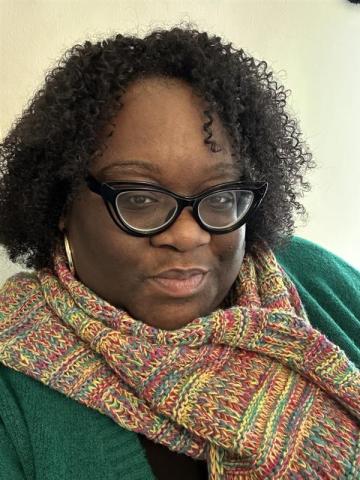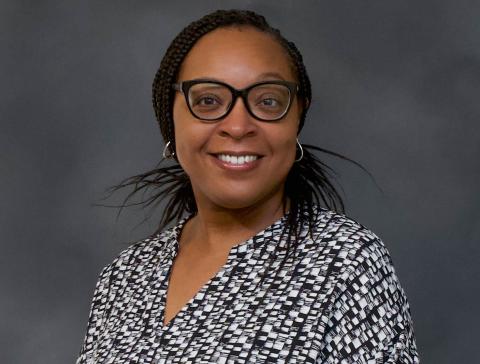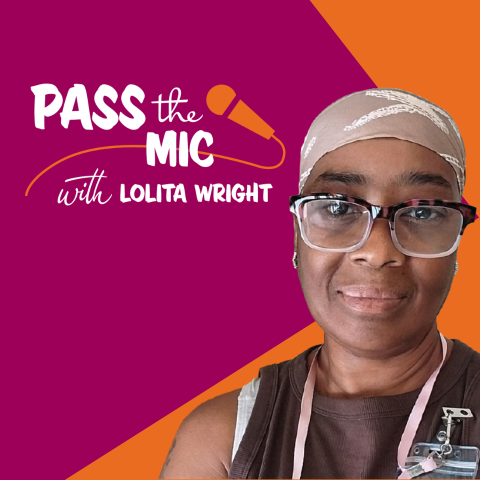Housing shouldn’t be this hard
Joyce was at her breaking point.
She was 67 years old and had been in a Baltimore County shelter for six months.
“During that time, everything was just going backwards. I guess you would say I didn't have a home to go to. Or anything. And then when I had to give up my puppy, I just lost my whole life,” she says.
The shelter only made her feel more out of control. From wake-up calls at 6 a.m. and strict 9 p.m. curfews to restrictive food and medication schedules, living in the shelter quickly took a toll on Joyce’s mental and physical health. She needed to find housing and fast.
But shelter staff didn’t have the capacity to help Joyce navigate the labyrinth of barriers to affordable housing.
As Lead Therapist Case Manager Audrey Kelly, LCSW-C explains, “Shelters are really a short-term fix to a long-term problem. The long-term problem is that we have rampant homelessness. We have rampant poverty. We have social networks that are totally stripped right now.”

The treatment of housing as a market commodity instead of a fundamental human right has created a system that keeps those who most need housing from accessing it. To get a housing subsidy like a Section 8 voucher, a person experiencing homelessness must:
- Come to a center like Health Care for the Homeless and connect with a Certified Navigator to assist with the housing process.
- Complete a city housing application that requires a birth certificate, social security card and proof of income (Often lost, damaged or stolen if you’re living on the street).
- Meet with the navigator once per month (difficult during a pandemic).
- Wait to receive a voucher. This can take anywhere from two to eight years.
- Complete Housing Authority of Baltimore City application—which includes a background check.
- Receive a voucher and find private housing that accepts the voucher within 60-120 days.
But a voucher comes with many restrictions.
“Clients are so excited when they receive a voucher, but they run into certain brick walls,” explains Therapist Case Manager Kyle Berkeley, PhD, LMSW. “They might find a place that meets their needs, but then a landlord doesn't want to take the voucher or a place is out of the price range for a voucher. There’s a lot of gatekeeping.”
Joyce has experienced these and other barriers firsthand.
“If you ain’t got credit, if you’re not making a certain amount of money, if you can’t get a job, if you can’t cover the bills—you’re not going to get out of the shelter. You’re not going to get a place to live,” she says.
During her shelter stay, Joyce connected with Umoh Udok, a Case Manager at our Baltimore County clinic. Together, they began the months-long process of applying to apartments.
Even though Joyce would have preferred Essex, where she spent the last fifteen years, she faced losing her shelter bed if she rejected more than three apartments.
After almost daily phone calls, Umoh and Joyce found a place in Towson. She moved in two days later on November 19.
While she’s still figuring out how to navigate a neighborhood she didn’t choose, she’s glad to be out of the shelter. “I just go day by day, find something to do, just go out and walk around or sit down and talk with some of the people in this apartment building. It's a lot better than being there in that shelter. It really is. I would never wish that on anyone.”
Learn more about the barriers we’ve all put up for people like Joyce at the 2022 Virtual Chocolate Affair.
More Recent News
After a year of serving as Practice Manager of West Baltimore, Alkema Jackson is moving into the new role of Director of Practice Operations, Community Sites! She joined Health Care for the Homeless in 2022 as the Client Access Project Coordinator, collaborating across departments to help more people connect to agency services, and in 2023, she received a Core Value Award for Hope. Read on to learn more about Alkema’s approach to this new position…
Meet Christana Greene, our new Director of Compliance! With more than five years in the compliance field—most recently as Senior Quality and Patient Safety Specialist at GBMC Healthcare—Chrissy brings frontline insight to the role. She began her career as a medical assistant, gaining firsthand experience in what it takes to keep care safe and operations running smoothly. In her new role, Chrissy is focused on building a compliance culture grounded in safety, integrity and accountability. Read on to learn more about Chrissy...
Baltimore gets dangerously cold, and too many of our neighbors are out there.Here are three simple things you can do to make a difference in someone’s life this winter.
Meet Lolita Wright, a mother and caregiver. Lolita is never leaving Baltimore. She shares her parents' love of music and determination.





